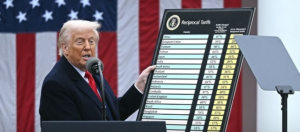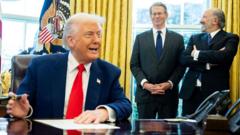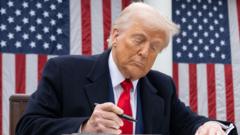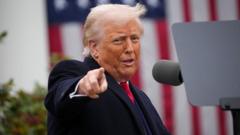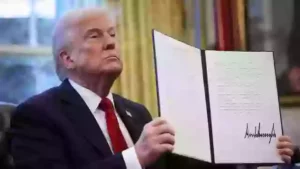The recent gathering of BRICS leaders in Russia marked a pivotal moment as Xi Jinping and Narendra Modi, heads of state from China and India, convened for their first official discussion in over five years. This meeting, which follows a significant agreement on border patrols in the contested Himalayas, suggests a potential thaw in the otherwise tense relationship between the two nations. As members of an expanding BRICS coalition, they aim to strengthen ties while navigating the complexities of global geopolitics and enhancing their positions on the world stage.
#BRICS Summit: Xi and Modi Meeting Signals Possible Reconciliation

#BRICS Summit: Xi and Modi Meeting Signals Possible Reconciliation
Xi Jinping and Narendra Modi's rare meeting at the BRICS summit may lead to improved Sino-Indian relations following a recent border settlement.
At the BRICS summit, held in Kazan, Russia, Xi and Modi's encounter occurred shortly after both countries reached a critical agreement on managing their contentious Himalayan border. This deal is designed to alleviate tensions that have persisted since a violent confrontation in 2020, indicating a willingness from both sides to improve bilateral relations. Historically, these two nations have maintained strained relations, with India increasingly aligning itself with U.S.-led alliances such as the Quad, aimed at countering Chinese influence in the region.
The BRICS summit, now in its 16th year, sees the participation of an expanded group that includes Brazil, Russia, India, China, South Africa, alongside new members Egypt, Ethiopia, Iran, and the United Arab Emirates—together representing nearly half of the global population. The coalition, originally set up to serve as a counterbalance to Western-centric organizations like the G7, has often struggled to maintain a unified stance due to the divergent interests of its leading nations.
China is keen on strengthening BRICS as a platform to challenge U.S. dominance and position itself as a leader within the Global South. In contrast, India seeks a more measured approach, indicating reluctance to allow BRICS to evolve into an overtly anti-Western forum. During collaborative sessions on financial strategies, leaders focused on the potential for creating financial mechanisms that operate independently of the U.S. dollar.
A notable proposal by Russian President Vladimir Putin included the establishment of a BRICS grain exchange, which could evolve into a broader commodities exchange. This suggestion comes in the context of global agricultural supply disruptions exacerbated by the ongoing conflict in Ukraine, positioning Russia—which is a leading wheat exporter—in a pivotal role.
The developments at this year's summit reflect the intricate dynamics shaping the relationships among BRICS nations and highlight the potential for new alliances amid an evolving global landscape, where economic power and geopolitical influence remain in flux. The paths these nations take could significantly alter the balance of power on the world stage moving forward.
The BRICS summit, now in its 16th year, sees the participation of an expanded group that includes Brazil, Russia, India, China, South Africa, alongside new members Egypt, Ethiopia, Iran, and the United Arab Emirates—together representing nearly half of the global population. The coalition, originally set up to serve as a counterbalance to Western-centric organizations like the G7, has often struggled to maintain a unified stance due to the divergent interests of its leading nations.
China is keen on strengthening BRICS as a platform to challenge U.S. dominance and position itself as a leader within the Global South. In contrast, India seeks a more measured approach, indicating reluctance to allow BRICS to evolve into an overtly anti-Western forum. During collaborative sessions on financial strategies, leaders focused on the potential for creating financial mechanisms that operate independently of the U.S. dollar.
A notable proposal by Russian President Vladimir Putin included the establishment of a BRICS grain exchange, which could evolve into a broader commodities exchange. This suggestion comes in the context of global agricultural supply disruptions exacerbated by the ongoing conflict in Ukraine, positioning Russia—which is a leading wheat exporter—in a pivotal role.
The developments at this year's summit reflect the intricate dynamics shaping the relationships among BRICS nations and highlight the potential for new alliances amid an evolving global landscape, where economic power and geopolitical influence remain in flux. The paths these nations take could significantly alter the balance of power on the world stage moving forward.




